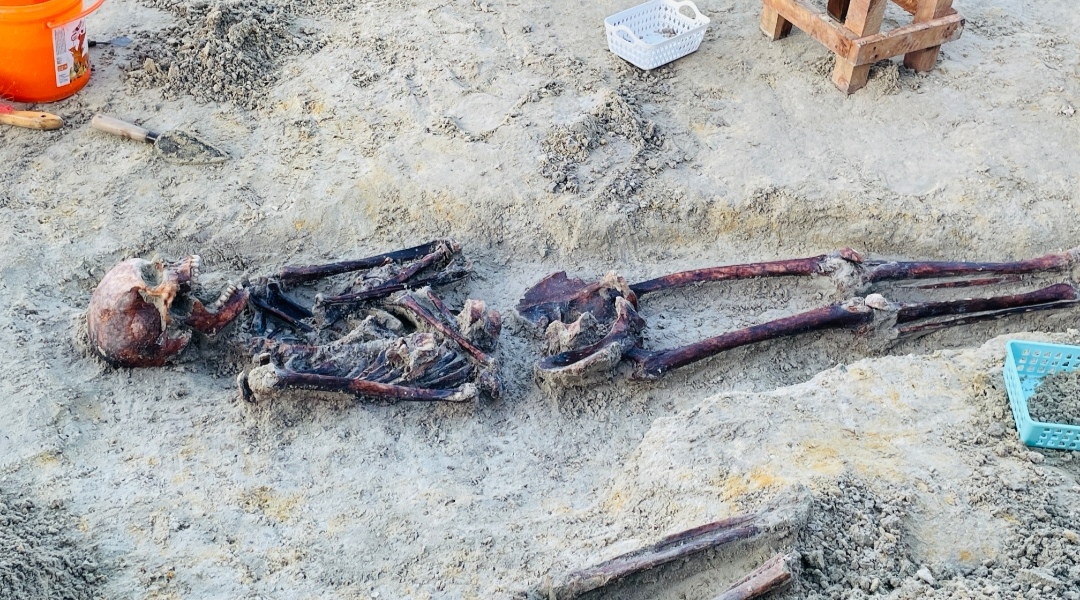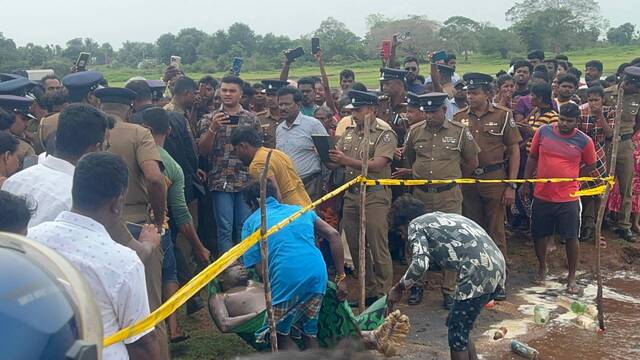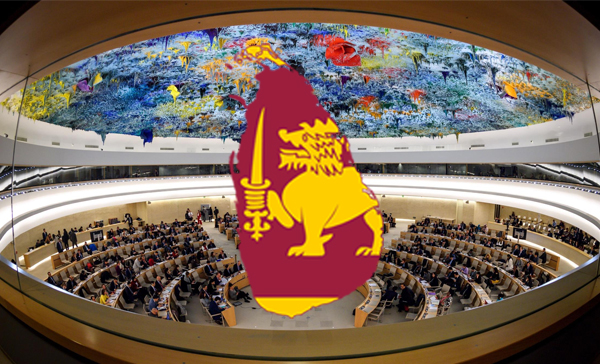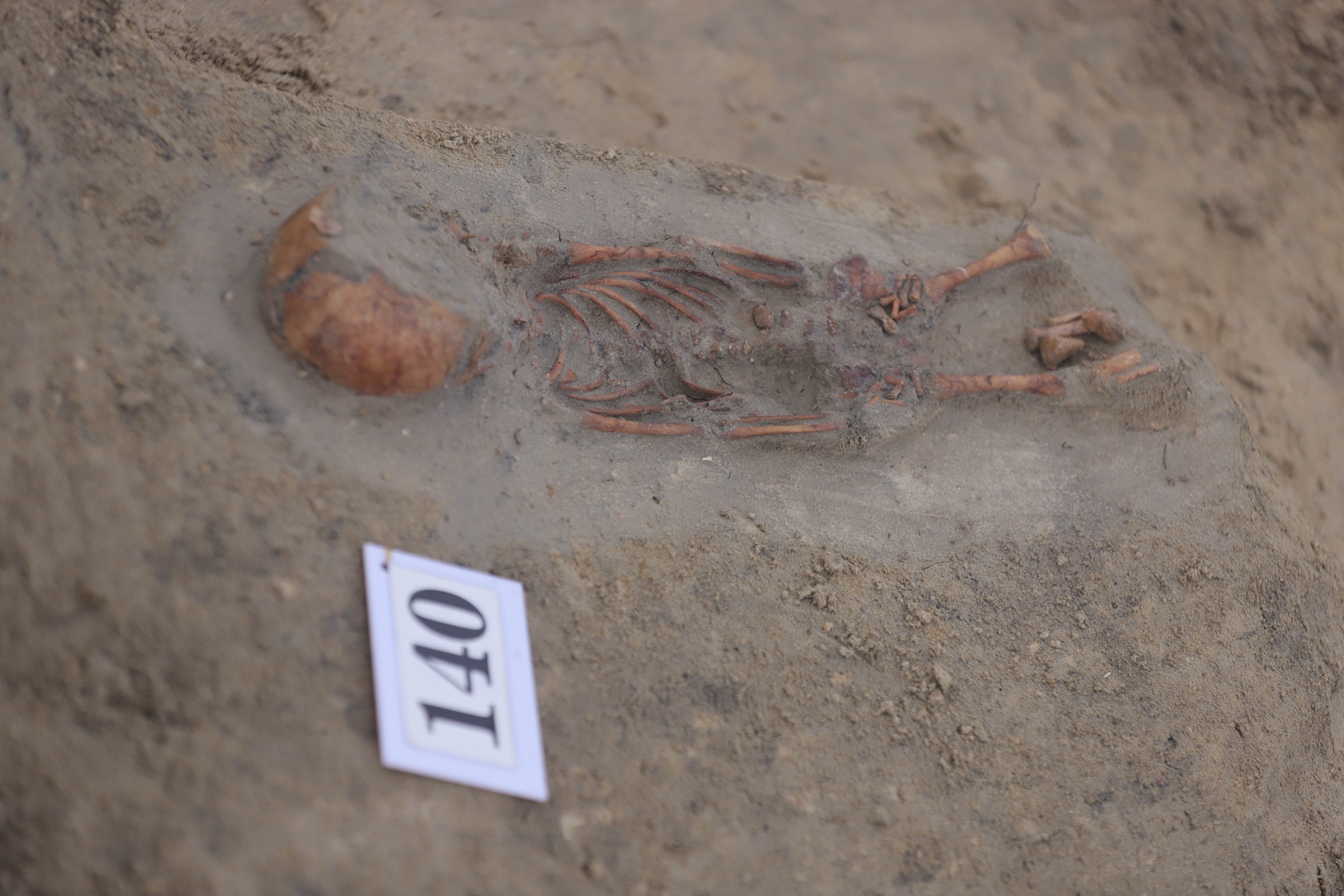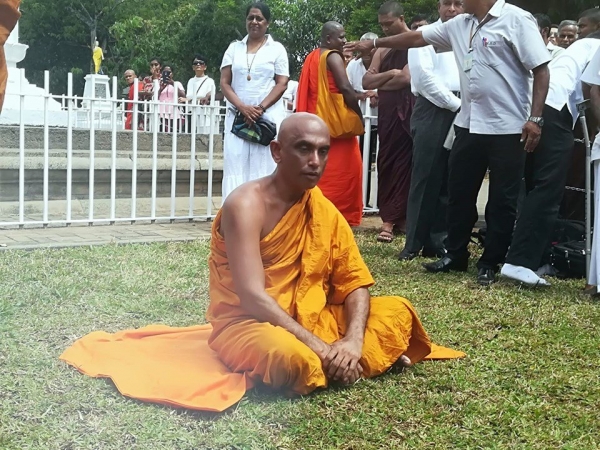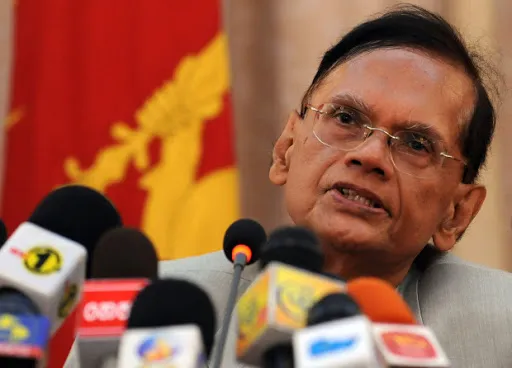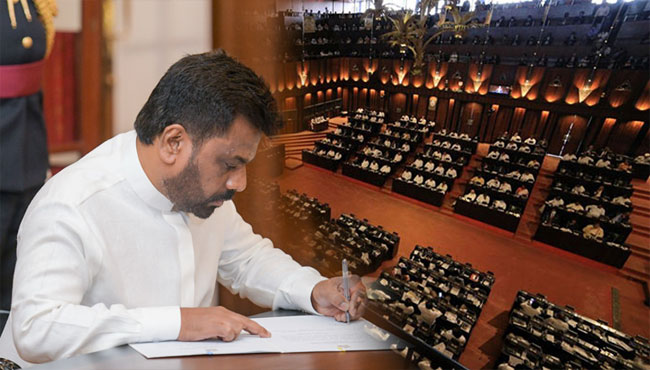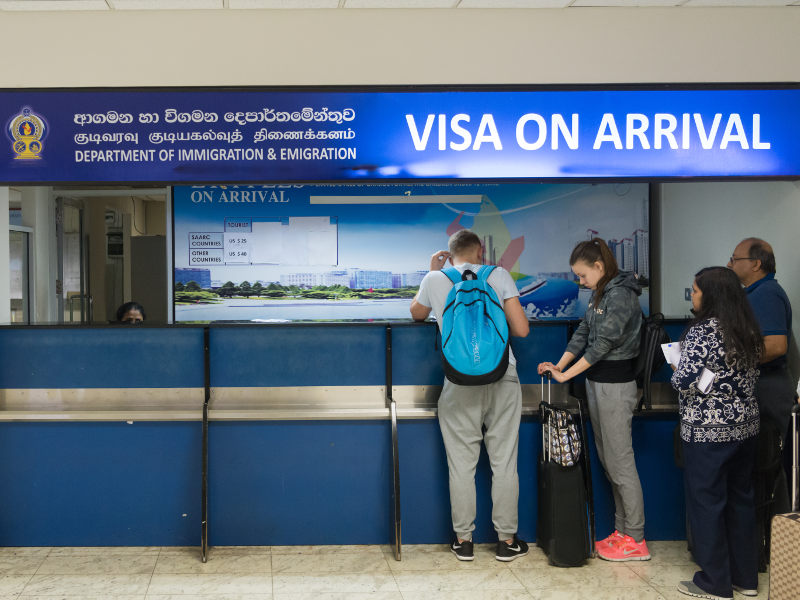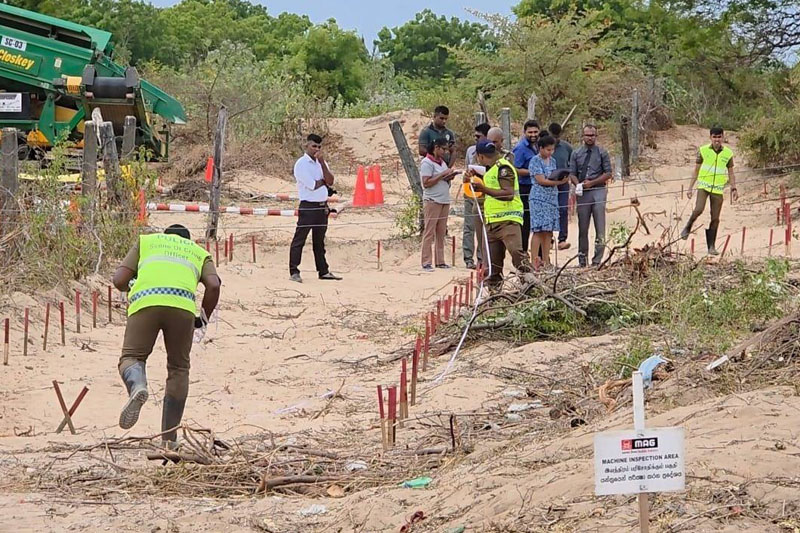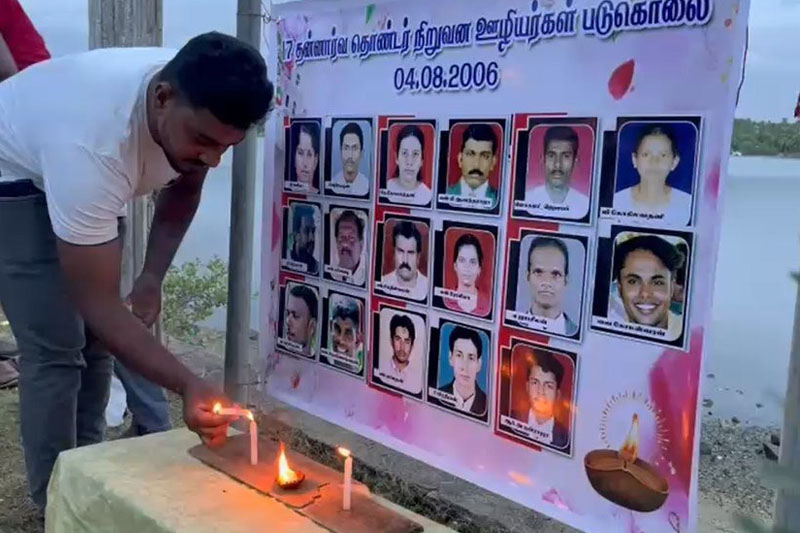The ongoing excavation at the Chemmani mass grave concluded its activities on August 6, having uncovered 147 skeletons. Excavation work was temporarily halted on August 6 and is scheduled to resume on August 22. The court case related to the mass grave will be heard at the Jaffna Magistrate’s Court on August 14, where a full report of the findings will also be submitted.
On August 4, significant progress was made at the site. Three Commissioners from the Human Rights Commission of Sri Lanka Prof. Thaiyamuthu Thanaraj, Prof. Fathima Farzana Haniffa, and Dr. Gehan Dinuk Gunatilleke visited the site to observe the excavation. They were joined by Jaffna Regional Coordinator Thangavel Kanagaraj and other officials, who engaged in discussions with forensic experts on the findings after 30 days of the Phase 2 excavation.
That same day, Ground Penetrating Radar (GPR) scanning began to locate potential hidden burial sites. Conducted by the Faculty of Technology at the University of Sri Jayewardenepura using specialised equipment, around 20 percent of the scanning was completed, with the rest planned for the coming weeks.
Following a court order, clothing and personal artefacts recovered from the grave were displayed publicly on August 5 to allow families to identify belongings of their missing loved ones. Over 200 people attended, including relatives, officials from the Office on Missing Persons (OMP), and members of the public. The display was organised with support from students of the University of Jaffna’s Medical Faculty and judicial medical officers. However, no items were positively identified.
On the same day, GPR scanning was completed, pinpointing specific areas within the Chemmani Siththupaththi Hindu Cemetery for further excavation. The findings will be submitted to court on August 14. Victims’ lawyers are also expecting a soil analysis report to be presented at the hearing.
August 6 marked a solemn day as six more skeletons were unearthed, raising the total to 147, with 140 fully exhumed. Among the remains were infants, whose fragile condition required especially careful handling. After 41 days of excavation across both phases, nine days in Phase 1 and 32 in Phase 2, the forensic team temporarily paused work due to physical and emotional exhaustion.
Source:Sunday Observer.lk


